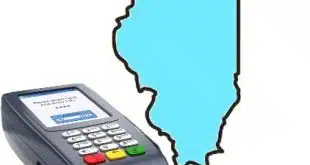ECOM Financial Corp., which has developed a disposable, anonymous prepaid card that works on the MasterCard network, has taken a step toward commercialization by reaching an issuing agreement with First Bank of Delaware, Wilmington, Del. In an announcement released Monday, the Stuart, Fla.-based company, which has had the card in the works for more than five years, also said Certegy Card Services Inc., a St. Petersburg, Fla., subsidiary of Fidelity National Information Services Inc., will provide processing for the card. “We are extremely excited about the potential offered by the ECOM prepaid MasterCard and look forward to working very closely with ECOM Financial in making this unique gift card a success,” said Alonzo Primus, executive vice president at First Bank of Delaware, in a statement. In an interview with Digital Transactions News late last summer, Isidore Papadopoulos, chief executive of ECOM Financial, stressed the anonymity of the card, which, when combined with its acceptance on the MasterCard network, allows the company to sell the cards to consumers through merchants like cans of soda or other merchandise, then process transactions almost immediately at any location that takes MasterCard (Digital Transactions News, Sept. 14, 2005). The cards will also be suitable for transactions on the Internet, Papadopoulos said. At the time, the company had signed issuing agreements with two unnamed banks. It was also in talks with three major merchants, which Papadopoulos would not name, to sell the cards. Papadopoulos projected issuance of 4.6 million cards in 2006, a number he said could grow to 38 million by the end of 2007. ECOM makes money from interchange fees as well as interest on prepaid funds, account fees it assesses on remaining value after cards expire, and promotional fees from companies branding the card. The card has been under development so long in part because of the company's need to negotiate both federal laws and MasterCard rules regarding the card's key feature, anonymity. Helping to allay fears of money-laundering or other illicit activity is the fact that ECOM limits the cash value that can be loaded on the card to $500. According to Papadopoulos, the card was originally conceived as an instrument by which teenagers could pay for copies of song downloads, long before anyone had heard of Napster.
Check Also
Has the CCCA Reached the End of the Road?
With the odds against the Credit Card Competition Act coming to a vote before the …




